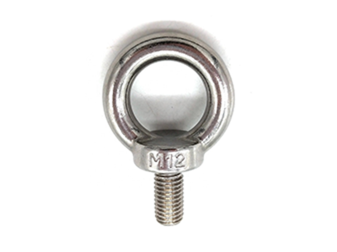Nov . 05, 2024 10:47 Back to list
grounding screw
Understanding Grounding Screws Importance and Applications
Grounding screws are integral components in electrical systems, providing a vital connection to ensure safety and functionality. In industrial, commercial, and residential applications, these screws play a crucial role in the grounding process, which is essential for handling stray voltages and dissipating electrical charges. This article delves into the importance of grounding screws, their applications, and the considerations necessary for their effective use.
What is a Grounding Screw?
A grounding screw is a metallic fastener that facilitates the connection of grounding wires to electrical equipment enclosures, junction boxes, or circuit breakers. Made typically from copper, stainless steel, or other conductive materials, grounding screws ensure a reliable, low-resistance electrical path to the ground, allowing for the safe discharge of electrical surges and preventing possible damage or hazards.
Importance of Grounding
Grounding serves multiple purposes in an electrical system
1. Safety Grounding protects individuals from electric shock. In the event of insulation failure, grounding provides a path for fault currents to flow to the earth rather than through a person.
2. Equipment Protection It safeguards electrical devices from voltage spikes, such as those caused by lightning strikes or power surges, which can otherwise lead to equipment malfunction or damage.
3. System Stability Grounding helps stabilize voltage levels in electrical systems, reducing the risk of fluctuations that can impair functionality and reliability.
4. Compliance with Standards Electrical codes and standards such as the National Electrical Code (NEC) in the United States mandate proper grounding practices, including the use of grounding screws, to ensure compliance and safety in electrical installations.
Applications of Grounding Screws
Grounding screws find extensive applications across various sectors
. Here are some key areas1. Residential Wiring In homes, grounding screws are frequently used in electrical panels, outlet boxes, and light fixtures. They connect grounding wires to metallic components, enhancing safety for inhabitants.
grounding screw

2. Commercial Electrical Systems Businesses rely on grounding screws for equipment like transformers, machinery, and panels. Proper grounding ensures the safety of employees and longevity of equipment.
3. Industrial Applications In heavy industrial settings, grounding screws are used in large machines and operational facilities where electrical surges can result from robust equipment. They help mitigate risks associated with higher voltages.
4. Solar Energy Systems In solar installations, grounding screws are critical for connecting the ground wire of solar panels to the electrical system, ensuring that excess energy is correctly dissipated.
5. Telecommunications Grounding in telecommunications is essential for protecting sensitive equipment from surges. Grounding screws assist in connecting equipment to grounding systems, protecting against electromagnetic interference and electrical disturbances.
Considerations for Use
When utilizing grounding screws, several factors must be taken into account
1. Material Selection The choice of material impacts conductivity and corrosion resistance. It is imperative to select a grounding screw made from appropriate materials that can withstand environmental conditions without degrading.
2. Proper Torque When fastening grounding screws, it’s essential to apply the correct torque. Over-tightening can strip the threads or compromise the integrity of the connection, while under-tightening can lead to loose connections that affect performance.
3. Installation Techniques Follow best practices during installation to ensure a reliable connection. This includes using appropriate tools, ensuring clean contact surfaces, and adhering to local electrical code requirements.
4. Regular Inspection Grounding systems should be routinely inspected for signs of wear or corrosion. Regular maintenance can help identify potential issues before they escalate into safety hazards.
Conclusion
Grounding screws are small yet crucial components in ensuring the safety and efficiency of electrical systems. By understanding their importance and proper application, we can help prevent electrical hazards and maintain the longevity of electrical installations. Whether in residential homes or industrial environments, grounding screws play an indispensable role in safeguarding people and equipment from potentially dangerous electrical faults.


